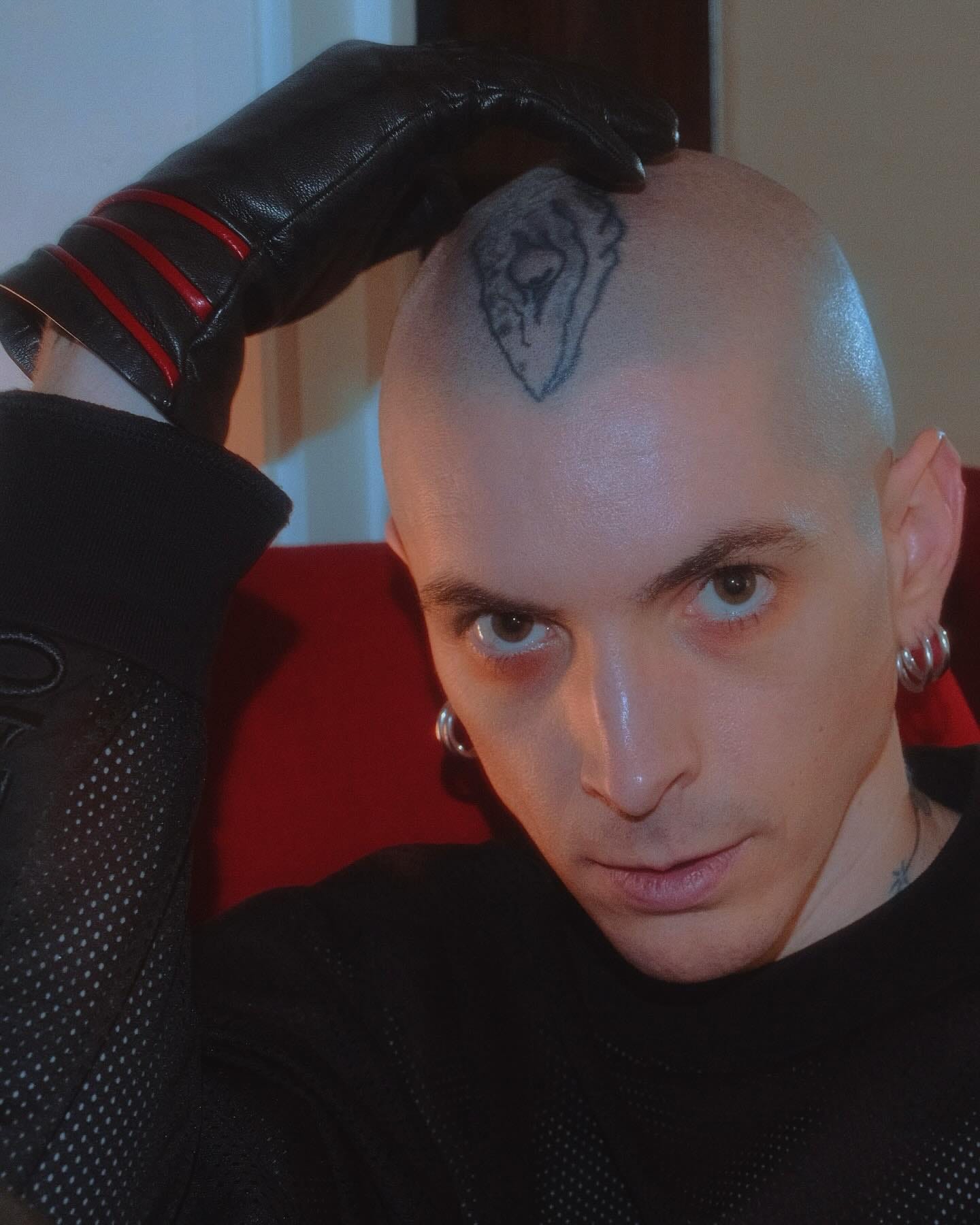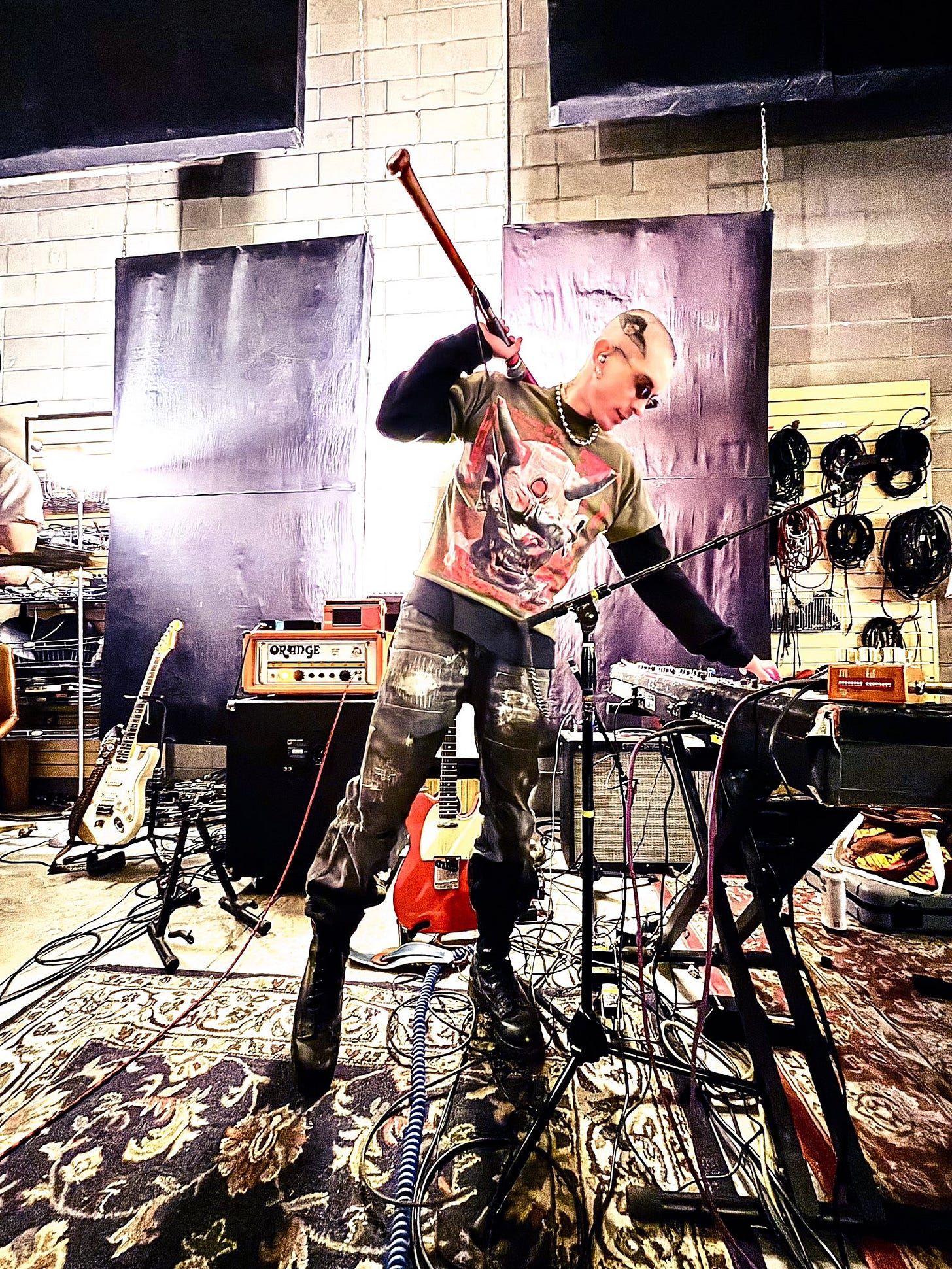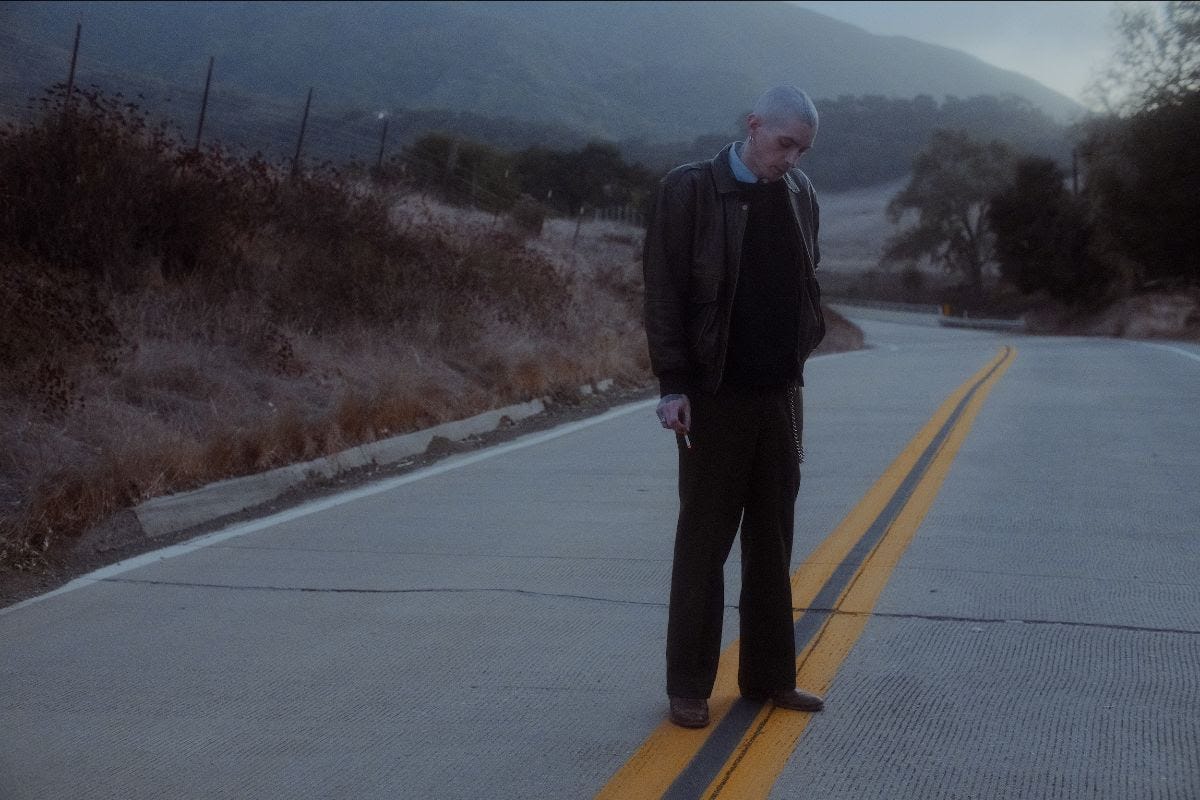Youth Lagoon: The more present you become, the more aware you are
A conversation with the singer-songwriter
Welcome to Human Pursuits, the column that features need-to-know names and stories in media and other creative spaces. Today, a conversation with Youth Lagoon.
The 2020s have been something of a renaissance for Trevor Powers.
After an eight-year hiatus, the Idaho-based producer and songwriter, better known as Youth Lagoon, returned to the spotlight with 2023’s Heaven Is a Junkyard, a set of intricately arranged chunes that found him exploring the open prairie of his creativity.
A cowboy at heart, I had wondered whether the record was Trevor’s opportunity to ride off into the sunset. To stake out one last score before he hung up his spurs.
Thankfully, he surprised me.
In February, Youth Lagoon released Rarely Do I Dream, a haunting collection of songs that blurs the line between childhood memory and gothic fantasy. Using old home movies to create audio samples, the album finds Trevor exploding through the fences of genre, infusing his patented brand of alien Americana with touches of art pop, post-punk, and (to my ears) hip-hop.
In an era of Silverlake Cowboys, his approach evokes the spirit of outlaw country. It’s dirty, and gritty, and at times downright weird. But it’s also beautiful and deeply human.
And so, we had much to discuss.
Our edited and condensed conversation touched on Trevor’s love of fashion, investing in accessories, Idaho living, Cormac McCarthy, pushing towards hope, and more.
Youth Lagoon is on tour now. Find information and tickets HERE.
ES: Where am I finding you?
YL: I’m in San Diego, at The Casbah. I’m trying to find a quiet place to talk. Laughs. The tour started 10 days ago.
ES: I was thinking about you and touring, and specifically, your go-to travel outfits. You’ve got a distinct look going at the moment, I can’t imagine you’re showing up to the airport in sweatpants.
YL: Laughs. I wear sweatpants at the hotel, but I never wear them out. I have a suitcase that is debatably too large for traveling, and it’s full of clothing. I like having options.
ES: I was looking at some old photos of you on Last.fm. Your style has really changed over the years. How would you describe your look to someone who’s maybe just learning about Youth Lagoon?
YL: That’s such an impossible question. It depends on the day. I just love clothes so much. You can communicate, in a subconscious way, whatever your thoughts and feelings are at that moment. To me, clothing and music do the same thing. It’s expressing the otherwise invisible parts of the soul and that seed of who someone is. And beyond that, it’s just fun.
The more present you become, the more aware you are... If you're on a walk or you're quieting your mind, you can be absorbed by the itty-bitty details of everyday existence.
ES: That’s such a beautiful way to think about it. Do you have clothes that you’re wearing on stage every night? Or are you dressing for mood, to quote George Costanza?
YL: I always dress based on mood. One of my favorite things to do on tour, or when I’m traveling, is hit thrift stores or hit Army-Navy Surplus. I always try to keep a bit of extra room in my suitcase for whatever I find.
ES: You’re the first person I’ve interviewed over the phone for Human Pursuits. Respectfully, what are you wearing right now?
YL: I’ve got some brand new sneakers, which I ordered because I ran my last pair into the ground. They were probably 15 years old, and loveably shitty, but it got to the point where I couldn’t tour in them. My feet couldn’t take it. I bought these Golden Goose sneakers, but they showed up a day late. A friend of mine was flying out from Idaho for the Los Angeles show, so she brought them for me.
ES: Damn, I didn’t realize you had Golden Goose money. Congratulations! Laughs.
YL: It’s always worth investing in shoes or accessories when you’re wearing them day in and day out, you know? It’s easier to spend more on something that’s getting constant wear. I’ll pair it with a shirt I found for fifty cents at Army-Navy, or a $3 pair of cords, or something. I like the high-low juxtaposition.
I’m wearing the sneakers with a pair of Wranglers from the 70s that my buddy got me for my birthday, and an oversized white shirt that I also got as a gift from another friend for Christmas.
ES: It’s cool that your friends buy you clothes like that. It’s such a personal thing. I usually only do it if the person has explicitly asked for it. I need to know the exact colour, size, everything.
YL: It’s cool because I have friends who know me so well, and people who have been in my realm and close to me for years and years. I’m so grateful for that. Those relationships are a huge reason why I’ve stayed in Idaho. It’s having that deep-rooted history with people that you love, and a location you love, too. The longer you stay somewhere, the more dimension it ends up having.
ES: I’ve always found your love of Idaho endearing. It’s refreshing to see a creative person with a national profile, if you want to call it that, who still has that slice of home they can return to.
YL: To me, it’s a necessity to have something that’s the counterweight to all the chaos that life as a musician brings… I have friends there that I’ve been buds with since I was in sixth grade. We’re brothers, and closer than ever, and I have family there. It's so beautiful to have all that surrounding me, not to mention the lyrical ammunition – the concept of home just keeps deepening and deepening.
There’s something to be said for walking the same streets. It’s easy to think, “OK, I’ve seen all this before, I’ve walked past these flowers, I know the mailman.” It’s easy to deceive yourself into thinking there’s nothing left to see. But it’s a lie. The more present you become, the more aware you are – especially in a state of stillness. If you're on a walk or you're quieting your mind, you can be absorbed by the itty-bitty details of everyday existence. That’s one of my biggest inspirations.
ES: In that same vein, the new album incorporates sound from these home movies that you found. What was it like for you to recontextualize your past in that way? Did you walk away with a new perspective on your family or yourself?
YL: All of the above. I've had so much love in my life and appreciation for everything, but the emotional weight of dealing with my family’s archive was beautiful and indescribably raw… It kept pushing me further and further musically. I don’t think I would have accessed those corners of my brain otherwise.
When I found this trove of home movies, the last thing on my mind was working them into music. I was just interested in watching them because I had never seen them… I had finished touring my last album, and I was exhausted. I planned to take a break, but the second I started watching the videos, it sparked something in my brain… It had a rhythm to it — the way my dad would talk, or my uncle would say something, and then my aunt would respond… There was such a musicality to it, and that quickly turned into me using those snippets as colors in the music. It kept pushing the emotions further and further.
I'm always guided by that deep part of my spirit, rather than something analytical and driven by the brain. When you're hyper-analyzing things in a critical way, it tends to corrupt the process rather than letting pure emotions out. Ideally, 95% of a song or an album would be created using intuition, and then the other 5% with critical thinking or conscious thought to clean up the mess and shape it into something more digestible.
Even when life hands you all kinds of gifts, there’s something inherently sad about the state of humanity. We’re surrounded by things that are really hard to look at.
ES: You mentioned some of the emotions you felt while writing these songs. What were those exactly?
YL: There’s something about sadness that’s always driving me. Even when life hands you all kinds of gifts, there’s something inherently sad about the state of humanity. We’re surrounded by things that are really hard to look at. In a lot of ways I think sadness is one of the most raw and real emotional states, but I don’t like staying in that place. The record is about taking something from this place of sadness or darkness, and then leading it through this tunnel into a place that’s much more hopeful. It’s always pushing towards hope, pushing towards light. That’s one of my goals with every song that I write. Like I said, I love juxtaposition. If it doesn’t have the right mix of opposites, then it doesn’t work.
ES: A lot of the coverage surrounding Rarely Do I Dream has zeroed in on the Western motifs, and it occurs to me that few symbols speak to that sad optimism you mentioned quite like a cowboy or cowgirl.
YL: Totally. That goes back to writing about home. I’ve been exploring those themes my whole life. My mom was in rodeos for years, and I grew up going to them… To some people, who aren’t from those kinds of places, it can feel like cosplay, but it’s the furthest thing from that. My reality in Idaho has been meeting these people, being in these circles, and being in these communities. They’re thick with characters and thick with stories, and I’m always taking those ideas and characters and combining them with my own life, using a literary or poetic perspective, to try and reveal one cohesive truth.
ES: When it comes to literature, do you mean someone like Cormac McCarthy?
YL: I love Cormac McCarthy. Another big one for me would be Jim Thompson. He wrote a lot of gritty, noir crime thrillers, usually taking place in small towns. The Killer Inside Me, that sort of stuff.
I also draw a lot of inspiration from film. People like Andrei Tarkovsky, Sofia Coppola, or Jim Jarmusch. I love pulling from those sorts of ensemble films, where it feels so immersive in terms of the world-building. I can take from that all day long because it’s a completely different medium. I can watch a movie and have it wash over me and have it speak to me on these levels that I can only otherwise access by working on music.
And then there are things like conversations and nature. Life feeds you inspiration whether you’re looking for it or not. I’m a very open and vulnerable person. I think that openness is a great gift because it means inspiration is always able to find its way in. I don’t have expend energy to open myself up. I'm already open.
ES: That really is the key to life, hey?
YL: Life is so big and beautiful when you’re in that state of openness, because when you see beauty, you’re able to recognize it.
Trevor Powers is a producer and songwriter. He lives in Idaho.







